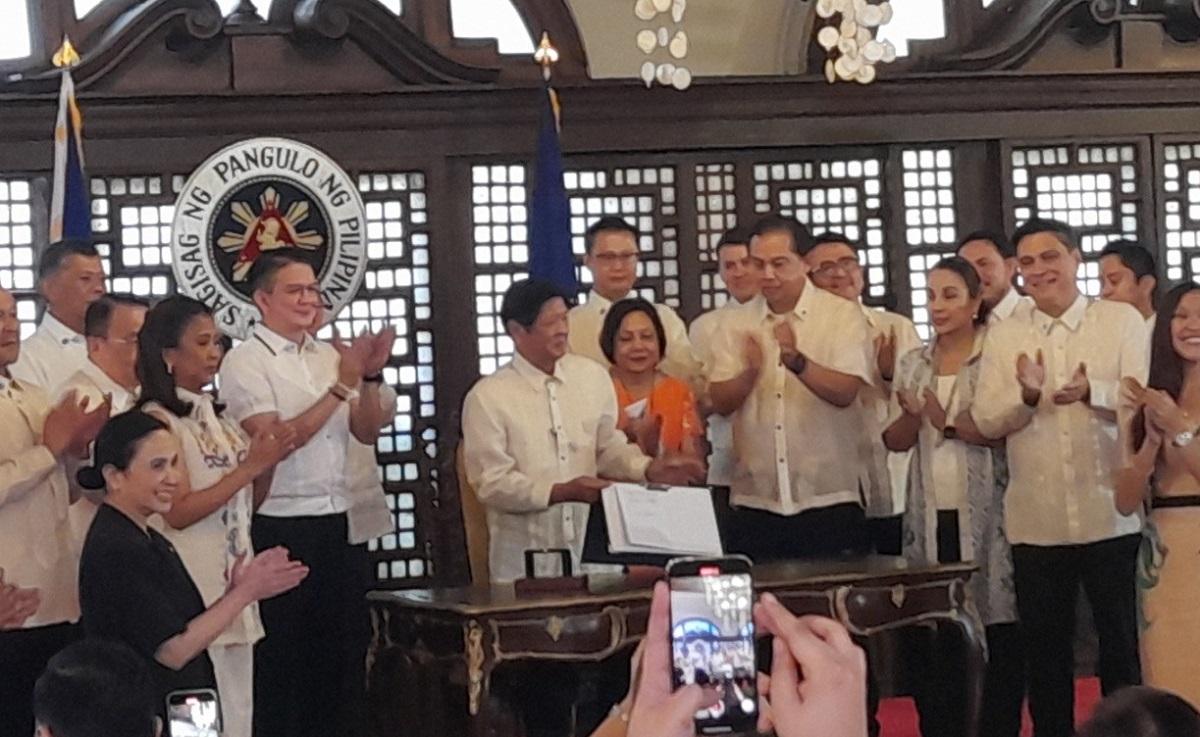Marcos signs agri economic sabotage bill into law

President Ferdinand "Bongbong" Marcos Jr. on Thursday signed into law the proposed Anti-Agricultural Economic Sabotage Act as the government seeks to thwart the entry of smuggled agricultural goods into the country.
The ceremonial signing of the law was held at the Kalayaan Hall of Malacañang Palace.
''The passage of the Anti-Agricultural Economic Sabotage Act will set in motion transformative outcomes. It is a proactive measure to prevent the entry of smuggled agricultural products, ensuring that the correct duties and taxes are paid while imposing higher penalties on violators,'' Marcos said.
''This law shapes a stronger, more resilient agricultural sector that defends both our farmers and our consumers,'' he added.
Under the new law, agricultural hoarding will be considered economic sabotage if a person or combination of persons is in possession of stocks of agricultural and fishery products in excess of 30% of their normal inventory level two weeks after the declaration of an abnormal situation, an emergency, or a state of calamity.
An Anti-Agricultural Economic Sabotage Council, which will be chaired by Marcos, will be created to enforce the law and ensure that swift and decisive action is taken against anyone who dares to sabotage the agricultural sector.
Further, an Anti-Agricultural Economic Sabotage Enforcement Group will also be established to dismantle smuggling operations and apprehend offenders.
Marcos said the law also provides for the development of a special team of prosecutors across the country to expedite cases related to agricultural sabotage.
''No longer will these cases gather dust; they will be prioritized and they will be resolved urgently,'' the President said.
''We will confront and dismantle the powerful forces that have long exploited our system for their own gain, ensuring that justice prevails, and the dignity of our agricultural sector is upheld,'' he added.
A Daily Price Index will also be created to monitor and publish prevailing retail prices of agricultural and fishery products in all regions to guarantee transparency and accountability.
The new law provides for the creation of an oversight committee and allocates initial funding of P500 million under the Office of the President for its implementation.
In September of last year, Marcos certified the bill, defining agricultural economic sabotage and imposing more severe penalties for violators, as urgent.
Marcos had expressed belief that the measure would promote the productivity of the agriculture sector, protect farmers and fisherfolk from unscrupulous traders and importers, and ensure the reasonable and affordable prices of agricultural and fishery products for consumers.
'More teeth'
According to Agriculture Secretary Francisco Tiu Laurel Jr., the new law has "more teeth" than the Anti-Agricultural Smuggling Act of 2016.
"'Yung law noong 2016, while nakatulong din naman 'yun, but kulang ng ngipin, kulang ng pangil... ito, this is a tougher law na mapapaisip talaga 'yung mga nag-iisip gumawa ng kalokohan dahil puwede sila makulong with no bail eh," Laurel said in an interview.
(Although it strengthened government efforts, the law in 2016 lacked teeth, lacked fangs... this new law is tougher, one that would make one think twice before doing illegal acts because they can be jailed without bail.)
He said that under the new law, all warehouses of grains and cold storage facilities will be registered, making it easier for authorities to monitor them. — VDV/RF, GMA Integrated News




